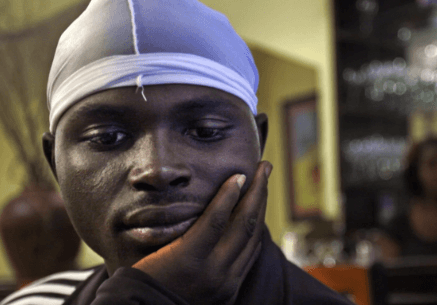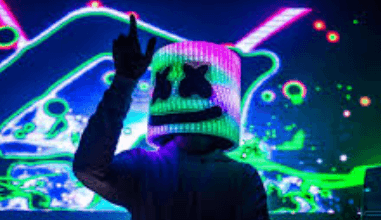
Dark:J56gn0rx4js= Black Man
The term ‘Dark:J56gn0rx4js=’ serves as a potent symbol of the intricate layers that define the identity of Black men today, highlighting their struggles for visibility and authenticity. In a world where narratives are often shaped by external perceptions, this exploration prompts a critical examination of representation in art and media. As we consider the historical context and personal stories that contribute to this multifaceted identity, one must ask: how can the resilience of Black men challenge prevailing stereotypes and reshape cultural discourse? The answers lie within the narratives yet to be uncovered.
The Meaning of ‘Dark:J56gn0rx4js=’
The phrase ‘Dark:J56gn0rx4js=’ encapsulates a complex interplay of cultural identity and digital representation, inviting a deeper exploration of how language and symbolism intersect in contemporary discourse.
This expression serves as a profound symbolic interpretation of digital identity, reflecting the struggles and triumphs inherent in navigating the online world.
It highlights the yearning for authenticity amid the complexities of modern existence.
See also: Diagram:Anho9uz3aos= Microscope
Historical Context of Black Identity
Throughout history, the evolution of Black identity has been shaped by a myriad of experiences, from the resilience forged in the crucible of slavery to the cultural renaissance that blossomed in the face of systemic oppression.
These historical struggles are woven into a collective memory that nurtures strength and unity, illuminating the path towards freedom and empowerment for future generations.
Representation in Art and Media
Emerging from the historical tapestry of resilience and cultural expression, representation in art and media serves as a powerful lens through which the complexities of Black identity are both celebrated and scrutinized.
Through artistic expression and visual storytelling, intersectional voices illuminate identity politics, fostering cultural visibility.
Artistic activism demands narrative authenticity, challenging stereotypes and enriching the discourse surrounding Black experiences in contemporary society.
Personal Narratives and Storytelling
Personal narratives serve as powerful tools for individuals to articulate their experiences, shaping not only their own identities but also the cultural fabric of their communities.
Through storytelling, we uncover the profound connections that bind us, allowing for healing and understanding in the face of shared struggles.
Power of Personal Stories
The profound impact of personal stories lies in their ability to forge connections, illuminate experiences, and foster understanding across diverse backgrounds.
Through identity exploration, individuals can articulate their unique journeys, fostering narrative empowerment.
These stories not only reveal the complexities of human experience but also inspire others to embrace their own truths, paving the way for authentic dialogue and deeper empathy.
Cultural Identity in Narratives
Stories woven from cultural identity serve as powerful conduits for understanding the nuances of individual experiences, allowing voices from diverse backgrounds to resonate and connect in profound ways.
Through personal narratives, individuals explore their cultural heritage and the evolution of their identity, illuminating the intricate interplay between tradition and change.
Such storytelling not only fosters empathy but also champions the quest for authentic self-discovery and freedom.
Healing Through Storytelling
Healing often emerges from the act of sharing one’s journey, as individuals transform their pain into narratives that not only validate their experiences but also foster connection and understanding among others.
Therapeutic storytelling serves as a powerful tool for narrative healing, allowing voices to reclaim freedom.
Through these personal narratives, communities can unite, empowering individuals to rise together from shared struggles and triumphs.
Challenges Faced by Black Men
Black men navigate a complex landscape marked by socioeconomic disparities that limit opportunities and access to resources.
Additionally, the pervasive issue of racial profiling further compounds these challenges, creating an environment of mistrust and anxiety.
Together, these factors contribute to significant mental health stigmas, making it difficult for individuals to seek the support they need.
Socioeconomic Disparities
Systemic socioeconomic disparities continue to pose significant challenges for Black men, impacting their access to education, employment opportunities, and overall quality of life.
Economic inequality and systemic barriers hinder their potential, often relegating aspirations to mere dreams.
This cycle of disadvantage not only affects individuals but reverberates through families and communities, fostering an environment where hope struggles against the weight of inequity.
Racial Profiling Issues
Economic inequality often intertwines with the pervasive issue of racial profiling, creating a complex web of challenges that disproportionately affects the lives of Black men in society.
Racial stereotypes fuel implicit bias, leading to unjust treatment and systemic discrimination.
These experiences not only hinder economic mobility but also perpetuate a cycle of mistrust, leaving Black men navigating a landscape fraught with prejudice.
Mental Health Stigmas
Navigating the complexities of mental health can be particularly daunting for men who face societal expectations to embody strength and resilience. This often leads to the internalization of struggles that remain unspoken.
Stigma reduction is essential to dismantling barriers, encouraging open dialogue, and fostering supportive communities.
Resilience Through Community Support
In the face of adversity, the strength of community support emerges as a vital lifeline, fostering resilience and empowering individuals to overcome challenges together.
Through active community engagement, members cultivate a sense of belonging that nurtures collective empowerment.
This interconnectedness not only uplifts spirits but also inspires action, creating a robust network where shared experiences transform struggles into triumphs, paving the way for freedom and growth.
Impact on Contemporary Culture
The resilience fostered through community support has profoundly shaped contemporary culture, influencing the narratives we share and the identities we forge in an increasingly interconnected world.
This dynamic landscape raises questions surrounding cultural appropriation and celebrates intersectional identities, challenging us to embrace diversity while honoring origins.
Through these conversations, we cultivate a richer understanding of freedom, recognizing the profound impact of shared experiences.
The Future of Black Identity
Emerging from a rich tapestry of history and culture, the future of Black identity is poised to evolve through the interplay of technology, social movements, and a renewed emphasis on self-definition.
As intersectional identity gains prominence, evolving narratives will reflect the diverse experiences within the community, fostering a collective consciousness that champions freedom and authenticity in a rapidly changing world.
Conclusion
The journey of the Black man, encapsulated in the concept of ‘Dark:J56gn0rx4js=’, illustrates a profound narrative of resilience and empowerment amidst societal challenges.
For instance, the hypothetical case of a young Black artist who transforms personal trauma into a celebrated mural serves as a testament to the strength found in storytelling and community.
This evolving identity, shaped by historical struggles and cultural richness, promises a future that embraces diversity and fosters inclusivity, ultimately enriching the broader societal tapestry.




